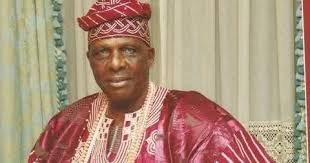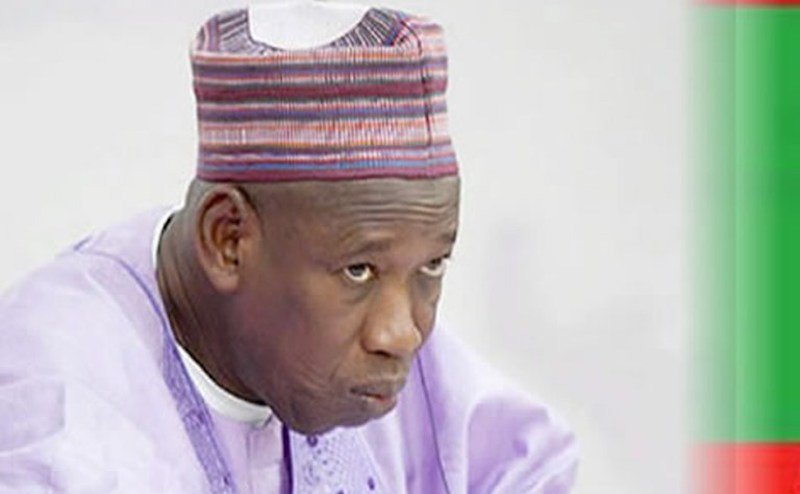By Dele Momodu
FellowNigerians, one of Africa’s greatest business icons, Sir Chief Labode Oladimeji Akindele (OFR, KJW, JP), was buried in his hometown of Ibadan, Oyo State, yesterday. In a country where history is no longer a priority, many Nigerians may not readily remember the name and the man as he died at the ripe age of 87, though he never retired from not his business and the limelight that he hugged so tenaciously in his heyday. But, trust me, if you’re talking of old money, good business and good character, here was a colossus, a giant amongst men physically and literally, who was committed to mother earth in a classy but understated ceremony, engendered by the COVID-19 pandemic and the physical and social distancing guidelines that it has spawned all over the world.
But for the unfortunate pandemic ravaging the world, Sir Chief Bode Akindele’s funeral obsequies would have been a global affair starting from the Commendation Service held in Lagos on Tuesday till the funeral itself on Friday in Ibadan. He deserved it because he worked assiduously for it. You will see the justification for my assertion in the course of my story about this enigmatic Yoruba chieftain and national and international business mogul and monumental philanthropist. During normal times, this would have been a burial of a titan, a farewell of monumental proportions that would have had the movers and shakers of Nigerian society in full attendance. The earth would have moved and trembled at the might of those who had come to pay their last respects to this great elephant that had fallen. It was not to be, but nevertheless, as was befitting of such a great man Chief Akindele still went out with a bang notwithstanding the prevailing conditions.
I was proud and delighted to be invited to join his close family members, associates and friends at the popular Methodist Church, Agbeni. It was for good reason. I have been a chronicler of the great man for a couple of decades. I have known Sir Chief Bode Akindele for close to 20 years. I was honoured to have been welcomed into his inner circle so warmly and was privileged to have had unrestricted access to his homes and offices in Nigeria and England. We enjoyed good food and exotic wines every time we had the opportunity of meeting. Our favourite at his home in London was always a sumptuous meal of Amala accompanied by Gbegiri and Ewedu otherwise known as Abula (an Ibadan all-time favourite and delicacy), with an array of rich assortment of meat and fish dishes as supporting cast. What do you expect from a proud Ibadan man, one of its wealthiest sons ever? I have never met such a man who loved his background and upbringing and glorious heritage so passionately. Despite being surrounded by a motley crowd of expatriate staff, everyone knew him and referred to him as an Ibadan son of the soil. You could see the glint in his eyes whenever he spoke, so copiously and eloquently, about his town, one of Africa’s biggest cities. He was innately still that Ibadan boy and was acutely aware of it and happy about his rich culture.

The first comprehensive glimpse of his life as a global player in the world of business was the launch of his autobiography, I DID IT GOD’S WAY, on his 70th birthday some 17 odd years ago, as well as his first major interview which he granted the Ovation International magazine. During the session he had with me and the Editor of Ovation International, Mike Effiong James, we met an accomplished man in all its ramifications, a humble and God-fearing gentleman, a man at peace with everyone and his Creator. Due to space constraints, it may be difficult to encapsulate all of Chief’s adventures in a life spanning 87 years plus in one article. I believe a compendium of books would not do him justice. He is a veritable resource material for historians, social commentators, welfarists and economists alike.
He was no doubt a silver-spoon kid with his father, Pa Laniyan Akindele, being the Chief Tax Officer of the Ibadan Native Authority, the equivalent of the Chairman of the Board of Inland Revenue today. His mother, Alhaja Rabiatu Adedigba Akindele, was a wealthy textile dealer and was the first woman to travel to Mecca in the whole of Ibadan. According to Chief, the journey took two and half years to complete and she returned in 1953. In those days “the only means of transportation to Mecca was first by train from Ibadan to Kano and then from Kano on camels through the Sahara Desert to Mecca…” What a scenic journey and vibrant experience that would have been for a young woman.
Despite his pedigree as a member of the privilegentsia, he attended primary and secondary schools in Ibadan and Abeokuta, before taking overseas courses by tuition in Secretarial skills, Accountancy and Business Management. He was determined to build his own career rather than rely on family fortunes. In those days, children of rich men and women were immediately co-opted into the family business rather than be encouraged to get an education. Akindele was fortunate that his father was a top civil servant who knew the value of education.

Once he completed his education Akindele took to business like a fish to water. His business acumen was phenomenal. He knew it was better for him to gain experience in the unfolding business world that the British and Europeans were introducing to Nigeria. The years 1952 to 1956 saw him navigating and meandering his ways through the labyrinth of commercial enterprises including U.A.C Limited, as a Trainee Manager, Ibadan Traders Association Limited as Personal Assistant to the Managing Director, Ibadan Bus Services Limited as Assistant Accountant and as Under-Secretary of the Western Nigeria Union of Importers and Exporters (Inc.).
However, it was right from school that his entrepreneurial spirits and skills first germinated and flourished. According to Chief Akindele:
“When I was in primary school, I used to do a little trading… Whenever I was going to school, I would just throw a packet of sugar or something in my bag. I would sell it to my school mates and teachers. So, I was making a little money. Later on, as I advanced, I would buy business journals, and write to merchants, who would send me things like shoes and so on and I would sell to both school children and teachers. When I got to secondary school, I decided to upgrade it. I made a deal with my mother, who was a trader in dried meat, called Kundi, from the North, to send me quantities of Kundi instead of my school fees and allowances. So, I would resell the meat and make extra money. Later on, we agreed that ten packets of Kundi would cover all my fees, so I asked her to send twenty to sell for her. She agreed to send me the meat, but I had to return the entire principal to her and keep only the profit to myself. I had to comply strictly with the conditions of the contract in order to keep that business going. You can’t do otherwise with my mother.
“Later on, after leaving school, I started importing sewing machines. At that time, the Japanese were very unpopular. It was long after the end of the second world war and their goods were regarded as second class. What the Japanese did was that they copied Western technology. At that time, Singer sewing machines were being sold for 32 Pounds. The Japanese wanted to penetrate the African market because they knew that Africa was where people could afford highly priced high-quality goods. I wrote them that we had a company that could help them popularise their goods in Nigeria. So, they wrote back to me. I asked them to send a sample for me to show to people. They replied that they would be delighted to do that if I could pay half the price of the machine. They would take care of the freight. I saw that as a good opportunity.

“The school I attended trained us very well in commercial subjects. I calculated that I would sell the machine for about 21 Pounds. So, I sent them 7 Pounds 10 Shillings and they sent a brand new sewing machine. Though it was assembled in Japan, there was no difference at all with the Singer sewing machine. I invited the big tailors to see the machine; I sold the machine for 14 Pounds. I sent the 14 Pounds to two other companies who wanted to send me samples. When the time came that I figured that the machine was getting popular, I raised the price to 21 Pounds each. So, the two that came were sold for a total of 42 Pounds.
“In those days, 42 Pounds was a lot of money. I put the whole 42 Pounds back into the business. I was the first person to introduce Japanese sewing machines here…”
Chief Akindele did not rest on his oars and rely solely on selling sewing machines. He realised at an early stage that diversification was necessary for any successful entrepreneur. He therefore decided to also go into the business of electrical fittings like fans and so on. At this time Chief Akindele had also established the Oke’Badan Brothers & Company (Produce Merchants) in Ibadan but later moved its headquarters to Lagos sometime around 1961 to 1962 because he felt Ibadan had become too small for the massive dreams brewing in his fertile and fecund mind. In Lagos. It was in Lagos that he founded his flagship company, the Modandola Group with a beautiful office at one of the choicest locations in Lagos at the time, 27-29 Martins Street, at the top of the African Continental Bank one of the prime Nigerian Banks of the 1960’s.

The business of produce merchandising was big but delicate. Many of the big names in it ended up incurring huge debts which sent them into liquidation and bankruptcy. Chief Akindele decided very early that this would not be his portion. He embarked on a lot of research and discovered the loopholes. For example, “the controlled produce included palm kernel, cocoa, palm oil, and some others. It was in these areas that big money was being made, but also, businesses were failing. However, there were more than two dozen other uncontrolled produce like gum Arabic, coffee, chilli, shea nuts, and so on. In his own words, “I decided that there must be somewhere out there in the world where these things are needed. I began to write. The first deal I got was for shea nuts. It was needed in Japan and Denmark and they said they wanted some… Then, I added chilli. I sold it all over England. Also Gum Arabic… Just before the civil war (1967-1970), I had grown relatively big. I had sixteen branches in the North, where I collected produce…”
To be continued…

 News6 years ago
News6 years ago
 Featured6 years ago
Featured6 years ago
 Boss Picks6 years ago
Boss Picks6 years ago
 Headline6 years ago
Headline6 years ago
 Headline6 years ago
Headline6 years ago
 Headline5 years ago
Headline5 years ago
 Headline6 years ago
Headline6 years ago
 Headline6 years ago
Headline6 years ago

















